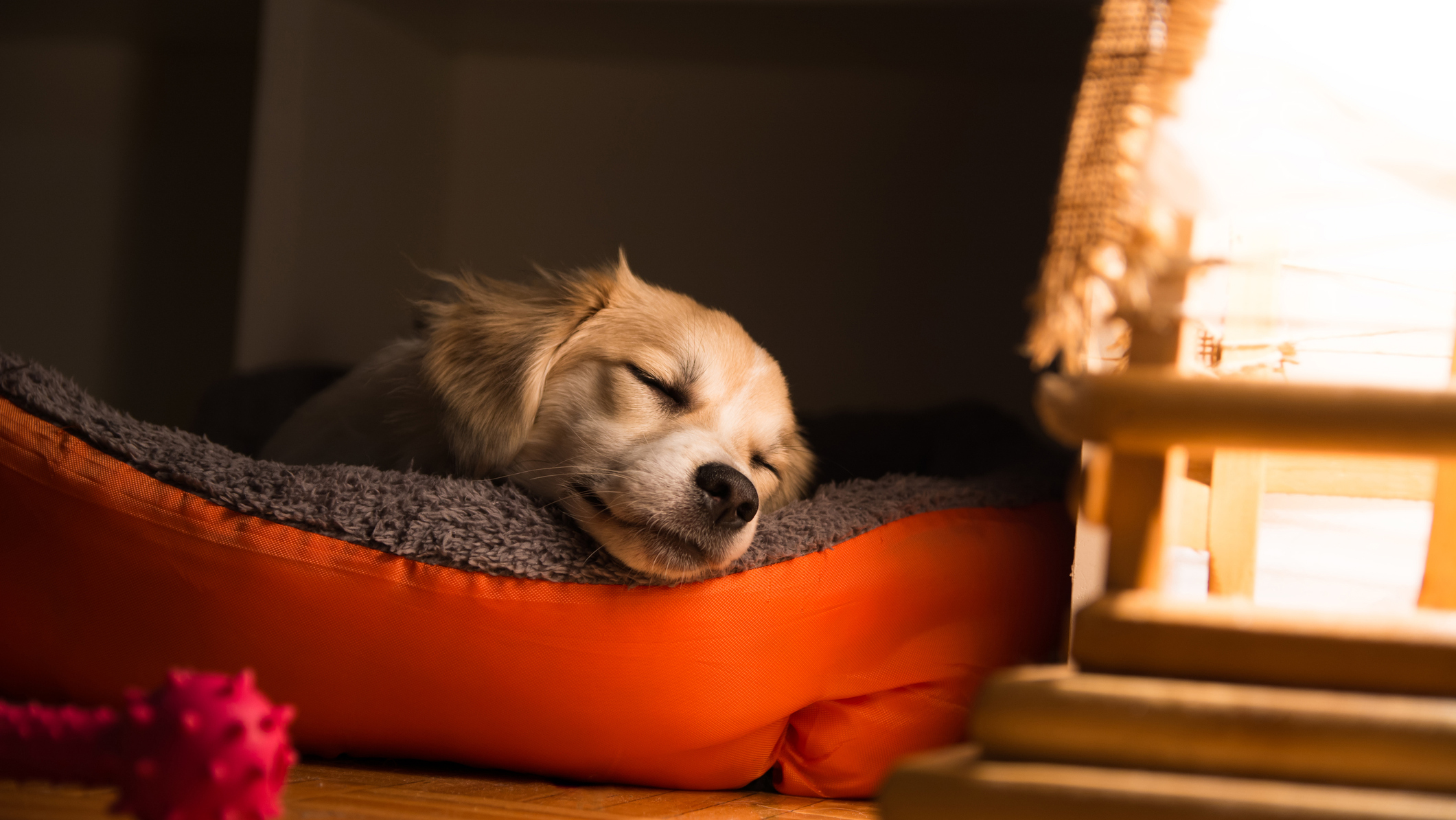Just like human babies, puppies need the most sleep when they’re very young and they gradually require less as they get older. Of course, sleep can be influenced from day to day by things like physical activity levels, feeding, and human factors, such as play or training.
Dogs are diurnal, polyphasic sleepers, meaning they get most of their sleep during the night but take at least two naps during the day.
Adult dogs sleep on average for 10-12 hours per 24-hour period. Growing puppies require more sleep than most adult dogs do and, when they’re very young, their sleep is strongly polyphasic – they alternate short periods of feeding and activity with sleep throughout the day.
Surprisingly little is known about puppies’ sleeping habits and few studies exist that help us to understand it well. We do know, however, from experiments that were carried out in the past, that getting enough sleep is absolutely vital to growing puppies.
How much sleep do puppies need?
An eight-week-old puppy needs 18-20 hours’ sleep in a 24-hour period. This might seem like a lot, but puppies are growing and developing quickly and a lack of sleep can be more harmful to their health and well-being than even a lack of food would be.
During the day, young puppies are awake and active for short bursts and then they need to sleep for a while. It’s not uncommon for them just to fall asleep in the middle of a play session! Your puppy will let you know when they need a nap, by showing less interest in whatever they’re doing, going off to bed or perhaps whimpering to themselves. If you see this behaviour, particularly if your puppy is sniffing around and looking distracted, it’s a good idea to check whether they need to go to the toilet before you pop them into their sleeping area.
Sometimes, puppies might only sleep for a few minutes and at other times it might be much longer. It’s best not to disturb them until they are ready to wake again. When they do wake up, take them straight to their toilet area and reward them when they use it.
Whether your puppy sleeps for minutes at a time or for an hour or more, a healthy puppy is active and lively when they are awake. If your puppy lacks energy or seems drowsy or sleepy during periods of ‘awake time’, contact your vet team for advice.
Some breeds of dog, most often brachycephalic (flat-faced) breeds, suffer from sleep disorders associated with their breathing. Affected dogs snore when they sleep and if their oxygen levels in their blood were to be checked at the time, it may show that they were lower than they should be. When affected dogs are awake, they are often drowsy and they fall asleep very easily. Talk to your vet if you are concerned that your dog may be affected by sleep-disordered breathing.
As puppies get older, they can stay awake for longer periods of time and need fewer and shorter daytime naps. They also find it easier to stay asleep for more of the night. In a recent study, owners reported that their 16-week-old puppies slept, on average, just under 12 hours in a 24-hour period, with 3.5 hours of that taken as daytime naps.
By the time puppies are toilet-trained and are eating only two meals per day, their sleep patterns and requirements will begin to resemble more closely those of adult dogs.
At 12 months of age, young dogs reportedly sleep for just under 11 hours in a 24-hour period and nap for around three hours during the day.
Studies have found that adolescence is associated with further changes in sleep characteristics: Dogs over 1.5 years of age have been shown to sleep for between 60% and 80% of the night (taken as 8 am to 8 pm) and for 3-28% of the day.

